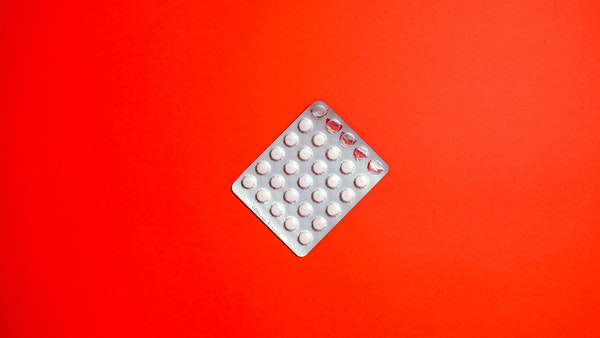Just In
- 2 min ago

- 52 min ago

- 1 hr ago

- 4 hrs ago

Don't Miss
- Movies
 Amazon miniTV Forays Into Tamil, Telugu Language Content; Brings 200+ Dubbed Shows & Films
Amazon miniTV Forays Into Tamil, Telugu Language Content; Brings 200+ Dubbed Shows & Films - Finance
 Top 5 Bank Savings Accounts With No Hidden Charges; Check Details?
Top 5 Bank Savings Accounts With No Hidden Charges; Check Details? - News
 Viral Video Manipur Election 2024 Violence: Miscreants Open Fire Near Booth, 3 Killed
Viral Video Manipur Election 2024 Violence: Miscreants Open Fire Near Booth, 3 Killed - Education
 IIIT-Bangalore Introduces PG Diploma In Digital Product Design And Management
IIIT-Bangalore Introduces PG Diploma In Digital Product Design And Management - Automobiles
 Jawa Yezdi Expands Mega Service Camps To 32 New Cities, Focusing On Tier-II And Tier-III Regions
Jawa Yezdi Expands Mega Service Camps To 32 New Cities, Focusing On Tier-II And Tier-III Regions - Travel
 San Marino: A Hidden Gem Of Ancient Architecture And Culture
San Marino: A Hidden Gem Of Ancient Architecture And Culture - Technology
 Snapchat Is Adding Watermark to AI-Generated Images for Transparency
Snapchat Is Adding Watermark to AI-Generated Images for Transparency - Sports
 Hardik Pandya bystander as Akash Madhwal takes input from Rohit Sharma before bowling final over vs Punjab
Hardik Pandya bystander as Akash Madhwal takes input from Rohit Sharma before bowling final over vs Punjab
Alexander Disease In Infants: Causes, Symptoms, Diagnosis And Treatments
Alexander disease is a rare neurodegenerative disease; it falls into the category of leukodystrophies, a group of rare and inherited neurological disorders that result from problems in myelin, or the brain's "white matter".

However, the condition is more of a disease of astrocytes (an astrogliopathy) than a white matter disease (leukodystrophy). It is named after the physician W. Stewart Alexander who first described the condition in 1949.
In Alexander disease, the destruction of white matter is accompanied by the formation of Rosenthal fibres, unusual lumps of protein that accumulate in astrocytes, or non-nerve cells of the brain, leading to improper functioning of the nervous system. [1]
The condition is commonly found in infants as the symptoms start to show during the first two years of life. However, the symptoms can begin at any stage of life. The condition, if found in infantile form (0-1 years), may be fatal and cause the deaths of the majority of children before they reach the age of six. The disorder progresses more slowly and over a longer period of time in juvenile and adult-onset forms.
Take a look at the details of Alexander disease.

Causes Of Alexander Disease
According to a study, Alexander disease is primarily caused by mutations in the gene GFAP, which stands for glial fibrillary acidic protein. [2] The gene serves an important function in the development of cell structures of the brain and central nervous system. Also, the levels of GFAP in the blood indicated injury or damage to the brain or CNS. [3]
Normal levels of GFAP is good for the brain, however, the mutation causes excess production of the same and results in accumulation of the proteins, leading to damage of the brain cells and myelin.
The gene mutation associated with Alexander disease is not usually inherited from a parent. It is often a sudden mutation that occurs in the individual who develops the syndrome. Some cases of Alexander disease are due to the passage of mutated gene from the affected parent.

Symptoms Of Alexander Disease
There are four forms of Alexander disease and symptoms usually occur according to these forms: neonatal, infantile, juvenile and adult.
Symptoms of neonatal form usually begin in the first 30 days after the delivery. They include: [4]
- Hypotonia or decreased muscle tone.
- Myoclonus or sudden involuntarily jerking of muscles.
- Developmental delay.
- Seizures
- Vomiting
- Gastroesophageal reflux.
- Megalencephaly, characterised by large and heavy malfunctioned brain.
Note: Alexander disease in neonates could be severe and may cause death within two years.
Symptoms of the infantile form may include:
- Delay in the acquisition of new skills.
- Seizures
- Muscle spasms.
- Stiffness in the legs and arms.
- Difficulties with weight gain.
Symptoms of the juvenile form may include:
- Mild language delay.
- Speech-related problems.
- Problems in acquiring language.
- Hypophonia or vocal cord dysfunction.
- Vomiting
- Autonomic dysfunction
Symptoms of the adult form may include:
- Palatal myoclonus or rhythmic clicking sound in the ear.
- Slow speech.
- Hyperreflexia, overresponsive or overactive reflexes.
- Problems with balanced walking or swallowing.
- Sleep apnea
- Muscle weakness in both hands and legs.
How Does Food Affect Our Hormones? Types Of Food To Avoid And Dietary Tips
Diagnosis Of Alexander Disease
Some of the diagnostic methods for Alexander disease include:
- MRI: To look for white matter changes and abnormalities in the brain. [5]
- Genetic testing: Identify genetic mutation and lower the risk of the disease.
- Magnetic resonance spectroscopy: To know details on seizures occurring in the brain.

Treatments Of Alexander Disease
There is no treatment for Alexander disease; there are certain medications and therapies that help manage symptoms of the condition and improve quality of life.
Some of the supportive treatment methods may include:
- Medications: To manage seizures.
- Physcial therapy: To improve coordination and muscle weakness.
- Speech therapy: To help improve speech disorders.
To Conclude
The severity of Alexander disease decreases with age, meaning it is more severe during infancy and mild during old age. Consult a medical expert if the condition runs in your family.
-
 kids5 Common Infections In Children And What Parents Can Do About It
kids5 Common Infections In Children And What Parents Can Do About It -
 pregnancy parentingJennifer Aniston Talks About Infertility, IVF; Says, 'The Ship Has Sailed'
pregnancy parentingJennifer Aniston Talks About Infertility, IVF; Says, 'The Ship Has Sailed' -
 basicsWorld Fertility Day: The Decline of Fertility Rate In India: What Does It Mean?
basicsWorld Fertility Day: The Decline of Fertility Rate In India: What Does It Mean? -
 basicsExpert Article: Tips For Travelling During Pregnancy This Festive Season
basicsExpert Article: Tips For Travelling During Pregnancy This Festive Season -
 kidsBenefits Of Egg For Babies; What Is The Right Age To Include Eggs In A Baby's Diet?
kidsBenefits Of Egg For Babies; What Is The Right Age To Include Eggs In A Baby's Diet? -
 basicsWhat Are Contraceptive Injections? How Do They Work? Advantages And Disadvantages
basicsWhat Are Contraceptive Injections? How Do They Work? Advantages And Disadvantages -
 basicsWorld Mental Health Day 2022: Expert Opinion On Impact Of Infertility On A Couple’s Mental Health
basicsWorld Mental Health Day 2022: Expert Opinion On Impact Of Infertility On A Couple’s Mental Health -
 prenatalExpert Article: Getting Ready For Pregnancy At An Advanced Age
prenatalExpert Article: Getting Ready For Pregnancy At An Advanced Age -
 kidsTwin Viral Concerns Of COVID-19 And Monkeypox In Kids: What Parents Should Know
kidsTwin Viral Concerns Of COVID-19 And Monkeypox In Kids: What Parents Should Know -
 kidsWhy Do Kids Get Worms? How To Prevent Worms In Children?
kidsWhy Do Kids Get Worms? How To Prevent Worms In Children? -
 kidsDengue In Children: 8 Serious Symptoms Parents Should Know
kidsDengue In Children: 8 Serious Symptoms Parents Should Know -
 basicsWorld Breastfeeding Week 2022: UNICEF Guidelines For Breastfeeding
basicsWorld Breastfeeding Week 2022: UNICEF Guidelines For Breastfeeding


 Click it and Unblock the Notifications
Click it and Unblock the Notifications



